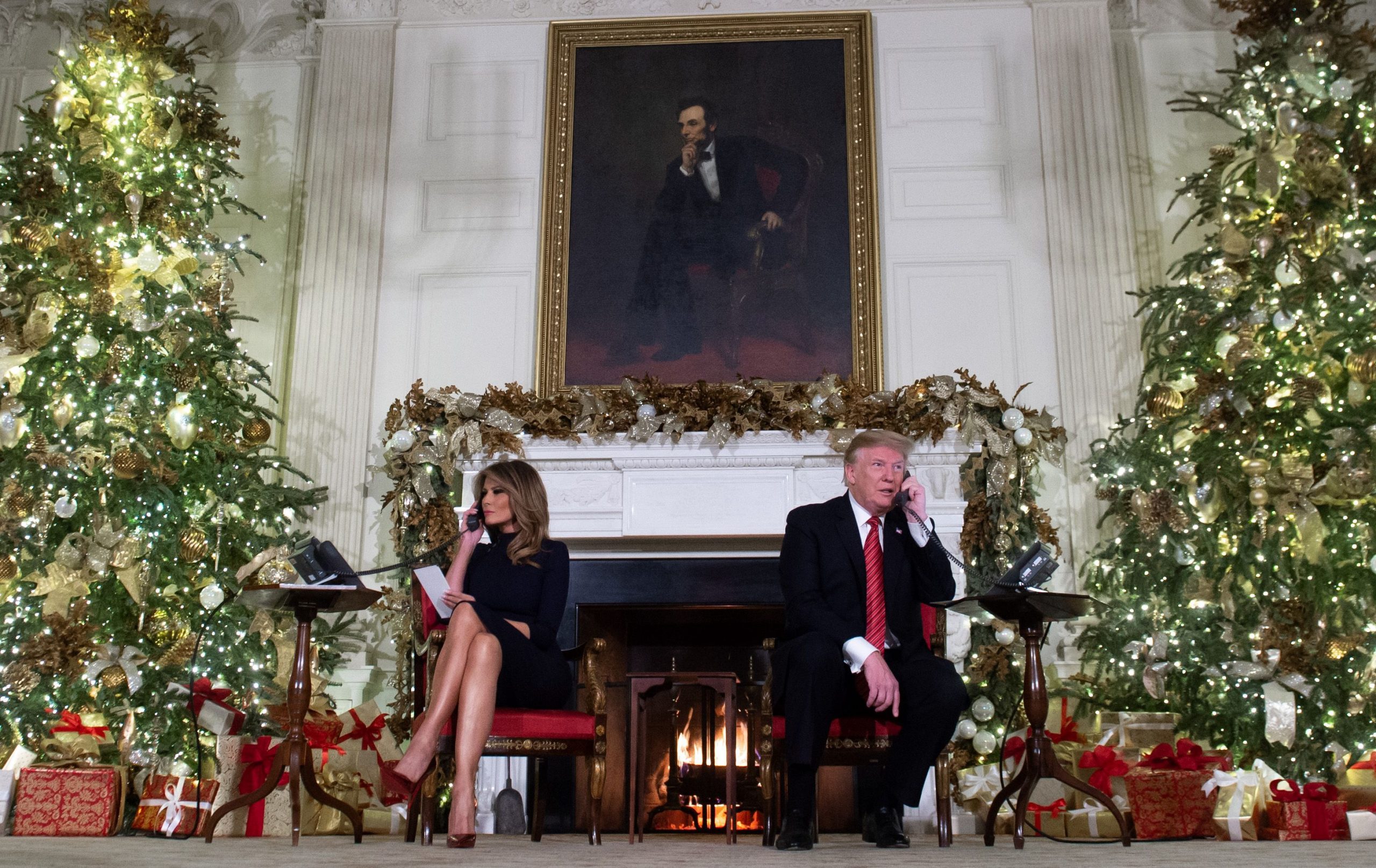Merry Christmas, Ya Filthy Animals!

Trump’s Christmas boosterism feels a bit unseemly. Almost as unseemly as those billboards that go up every season and say stuff like “Religion Makes You Stupid” and “Bible-Believing Christians, or Knuckle-Dragging Neanderthals?” (I exaggerate slightly.)
In the latest Christmas culture war spat, Michigan Attorney General Dana Nessel “clapped back” at Trump over his “we’re saying Merry Christmas again” schtick, casting it as a way of suggesting that those who don’t celebrate the holiday are less American than those who do. Some on the right characterized her words as discouraging people from using the Trump-favored greeting. That’s not quite right; she’s obviously responding specifically to Trump’s political appropriation of the greeting, such as she sees it. Trump, in turn, sees himself as responding to the “war on Christmas.” The phenomenon here is one of increasing escalation, of punching and counter-punching and counter-counter-punching, until a boxing ring decked with garland starts to feel like a better symbol of the season than a manger.
Yet there’s something a little odd about treating the words “Merry Christmas” as a magical incantation or a litmus test. Each side in the so-dubbed “war on Christmas” understands the other side to be the aggressor, but if we take a more meta view of the phenomenon, what stands out is how joyless it all is. (Read this Wikipedia rundown of Christmas controversies in America and try to get into the holiday spirit.) Good tidings and great joy, whether or not they point to Jesus Christ, are a part of the season. There’s a major deficit of joy in all of this: in demanding that we be greeted with the right words, in wishing people a Merry Christmas, whether they like it not, in keeping tabs on which companies use the word “Christmas” and which ones don’t in their holiday shopping flyers. This is conducive neither to the reflective, slightly spooky mood of Christian Christmas, nor to the general jolliness of secular Christmas. It’s kind of like the holiday-greeting equivalent of rolling coal. And not to “both-sides” again, but so are those billboards.
Perhaps “we” don’t do this. Perhaps the talking heads and click-driven publications eager for a seasonal story mostly do it, and the vast majority of ordinary people go their merry way. But if so, that’s not a terrific improvement. We still need to lower the political temperature. We are in need of a cultural non-aggression pact.
As I wrote a year ago, that can be found, ironically, in a return to the secular Christmas of yore, which was a kind of cultural truce itself. If you think chestnuts and snowmen and flying reindeer and sleigh rides in the snow (and the more substantive notion of Christmas as a time for charity and good company) have nothing to do with Christmas, you’re missing the point. This all constitutes not a replacement of the “real” Christmas but a sort of civic-religion parallel version of the holiday. This parallel Christmas makes room for those who do not believe its religious story, while in no way constituting an aggression against those who do. Every once in a while someone (like Garrison Keilor, several years ago) will grouse that Jewish composers hold the credits for most of the secular Christmas standards. Really, this is the kind of cultural production that America is good at, and which has allowed us, in this case, to create a broadly American holiday season. Secular, 1950s-reminiscent Christmas was and is an American phenomenon, and we’re worse for having lost it. Yes, there were midcentury anti-Semites who saw Rudolph as the tip of a Jewish plot. But the Eisenhower White House also emblazoned “Season’s Greetings,” that supposed politically correct Christmas erasure, on its official Christmas cards.
It’s hard to say who fired the first shot in the Christmas culture war, but it’s difficult not to see Christian culture-policing—Home Depot put a creche on their gift card, but Lowe’s didn’t! Target only said “winter”!—as broadly part of the same phenomenon as atheist billboards. They both evince an unwinding of a common culture, and an unwillingness to compromise. Donald Trump certainly didn’t start this. But his two favorite words aren’t going to bring our desiccated Christmas spirit back.